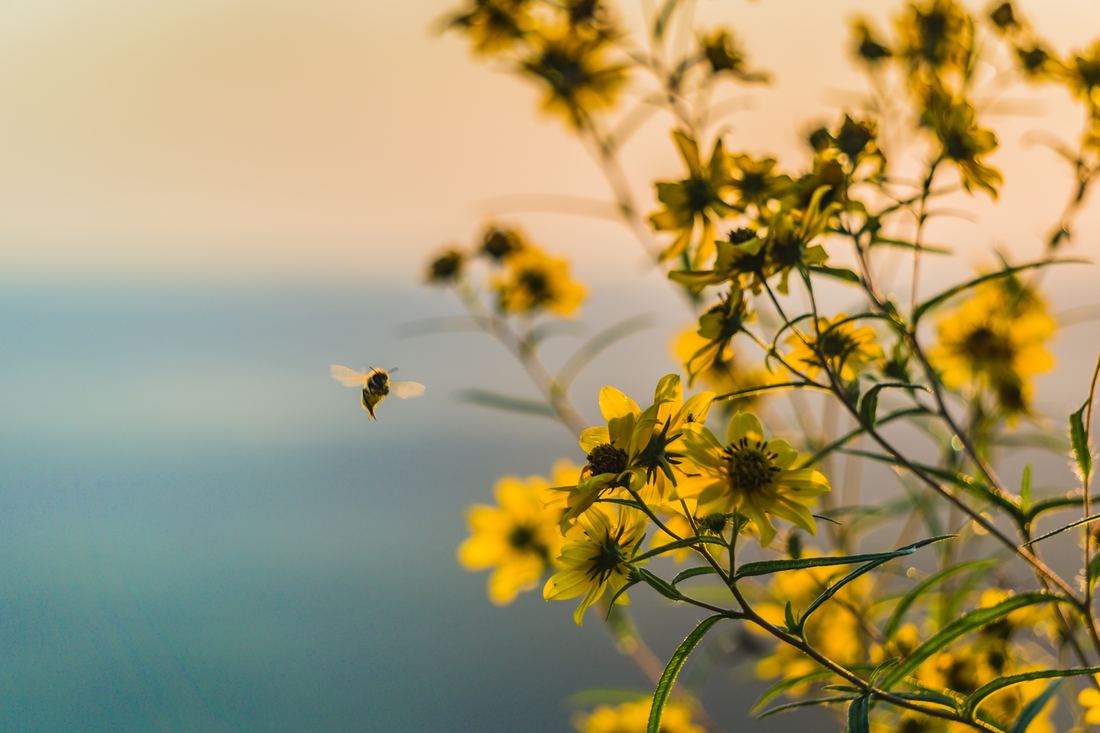 Photo by Brad Huchteman on Unsplash
Photo by Brad Huchteman on Unsplash I remember being terrified of bees as a kid. Summer afternoons morphed from lazy to terrifying as I would spot a bee buzzing around me and run inside the house, refusing the desperate calls of my mother to stay outside and play in the sunshine. But I couldn't stay. I couldn't risk getting stung. Little did I know that honey bees actually die after stinging a person. Looking back, it seemed a bit selfish to be afraid of something whose life was so short. What I also didn't realize is that my name, Melissa, means honey bee in Greek. Looking back, it feels fitting that the thing I was most afraid of was, linguistically speaking, myself.
As a six year old, I didn't understand why bees existed at all. Honestly, I wished long and hard for bees and spiders and beetles and all insects for that matter to simply disappear. I didn't have any sense of the existence and importance of an ecosystem until being much older. Thus, I didn't know that our ability to live in the world depends on a very delicate ecosystem, one that is not only build on warm and fuzzy creatures like cats and dogs and bunnies, but on not so lovable creatures like insects, porcupines, and yes, bees.
I am still blown away when I learn about the interconnectedness of every living thing on the planet. If you look at bees specifically, it is estimated that there are about 25,000 different bee species in the world. These tiny creatures may seem insignificant, but it is also estimated that without their ability to pollinate the countless different plants on earth, human beings would lose up to a third of the food staples we have grown to rely on. A THIRD of food staples we rely on. Think about that. No more almonds, peaches, plums, or cherries. And it's not simply a hardship of not having the piece of fruit we want to eat. Less food variety for human beings not only means a less diverse diet, but without bees' help, farmers would not be able to grow as many crops. Less crops means food prices at the grocery store rise. And rising costs could have endless ripple effects on the economy. And on an aesthetic note? Countless flowers that make our world a more beautiful place and our ecosystem even richer couldn't survive. All this from the seemingly teeny tiny bee. lCan we still wish that the bees would disappear?
As it is with each part of our ecosystem, from the elephants to the ants, so it is with the creative ecosystem as well. Sure, we adore the genius of Lin-Manuel Miranda's Hamilton may secretly wish to all be able to strike it just as successful. But what if we got our wish? What if we all got to be that big? Is that sustainable? What gets lost in the process? Just as if all the bees could suddenly turn into giraffes, what would happen if community based artists like you and me suddenly saw no need for art making at the grassroots level? If we refused to play a theatre with 25 seats and demanded stadium sized audiences instead? Let that sink in. Think about how much would be different, lost.
We need Broadway. We need regional theatres. We also need artists working in small basements and clubs and churches and libraries. We need Lin-Manuel Miranda. And we need YOU.
Let me be clear. I'm not talking about playing small, limiting yourself, or talking yourself out of a really big creative risk. We are human after all, and because we are human, we are capable of evolving. You should be dreaming big, be willing to expand, and be eager to transform. But regardless of where you find yourself at this very moment or at some moment in the future, just know that you are making work that matters RIGHT WHERE YOU ARE. Work that matters to you and that matters in the bigger creative ecosystem that we are all a part of.
Never underestimate your role in the creative ecosystem. If you ever find yourself doubting your own ability to make magic, stop and think of the bee. Easy to miss, but crucial for us to go on living, and responsible for the kind of beauty that makes that living worth it.
Be the bee.
